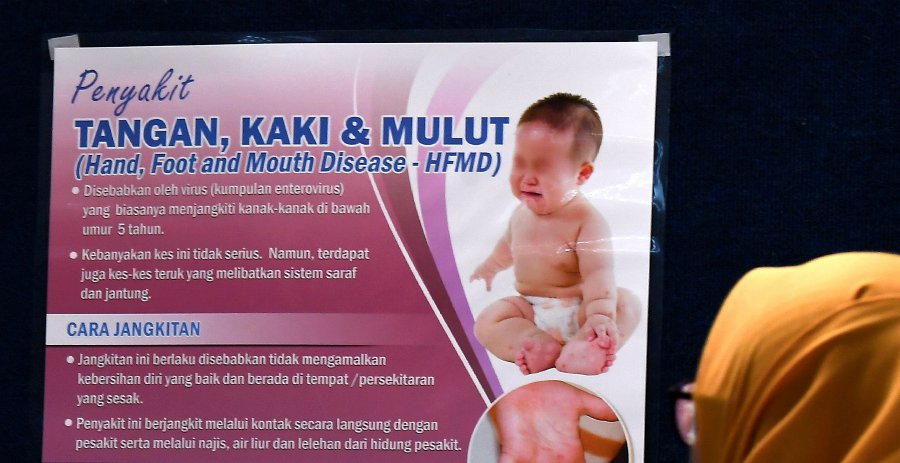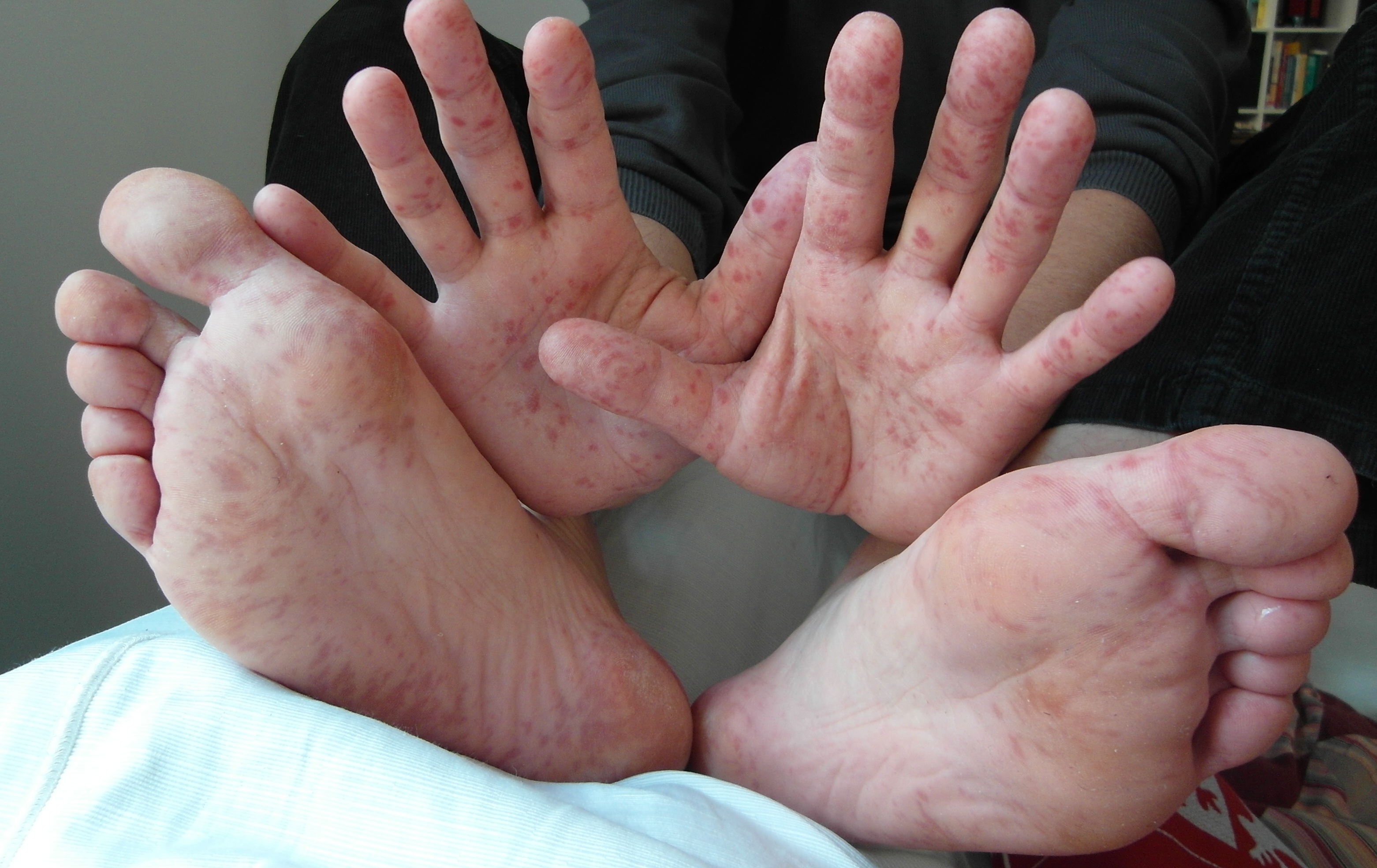Precautions Parents Should Take Now That There's A HFMD Outbreak In Malaysia
You can play a part in helping to prevent the spread of the hand, foot, and mouth disease with good practices.
Malaysia has been plagued with the outbreak of the hand, foot, and mouth disease (HFMD) recently
According to a statement by Health director-general Datuk Dr Noor Hisham Abdullah on 19 July, a total of 33,425 cases of HFMD have been recorded nationwide this year.
It was revealed that most states across Malaysia, with the exception of Sabah and Sarawak, have seen an increase in the number of HFMD cases this year compared with the corresponding period in 2017.
Anyone, even adults, can contract HFMD. However, children who are below the age of five are at higher risk for infection because they do not yet have immunity (protection) to the viruses that cause HFMD.
Although HFMD is not life-threatening and those who contract it should recover over time, the disease could bring high levels of discomfort to a child as well as cause loss of manpower hours and difficulty for families.
In light of the recent HFMD outbreak, the Health Ministry has been providing updates on the current situation as well as debunking certain false claims over school closures
In these statements, the health authorities have also taken the opportunity to advise the public, particularly parents:
1. To not ignore symptoms such as poor appetite and refusal to eat or drink, or vomiting and lethargy in children. Instead, bring the child to a nearby health facility immediately and seek medical treatment if necessary.
2. To not bring children with HFMD symptoms out to public places, schools, nurseries, or kindergartens as they might spread the infection.
3. To not share food/drinks, eating utensils, toothbrushes, toys, or towels with others.
"The control and prevention of infectious diseases including HFMD require all parties to play an active role, and it should start from yourself and at home," Noor Hisham said in a statement on 22 July.
The Health Ministry has also been sharing some tips and best practices to curb HFMD from spreading
All parents, nursery and kindergartens operators, as well as teachers are advised to always maintain high standards of personal and environmental hygiene by washing your hands after going to the toilet, changing diapers, or touching blisters.
To reduce the risk of getting infected, waste and diaper disposal should be made properly.
Since HFMD spreads from person to person by direct contact with nose and throat discharges, saliva, fluid from blisters, or the stool of infected persons, the public has been advised to clean and disinfect toys and other appliances used by children, and the floor, including the toilet floor, using household bleach such as Clorox.
It is also recommended to conduct screenings at premises frequented by children before a child is allowed to enter.
Parents and any supervisors such as teachers or nannies have also been advised to look out for children with fever, rash, or blisters on palms and soles and to isolate them immediately.
SJKC Shih Chung in Penang was ordered to closed down for 10 days beginning 11 July to contain the outbreak of HFMD.
Image via Sayuti Zainudin/Malay Mail



